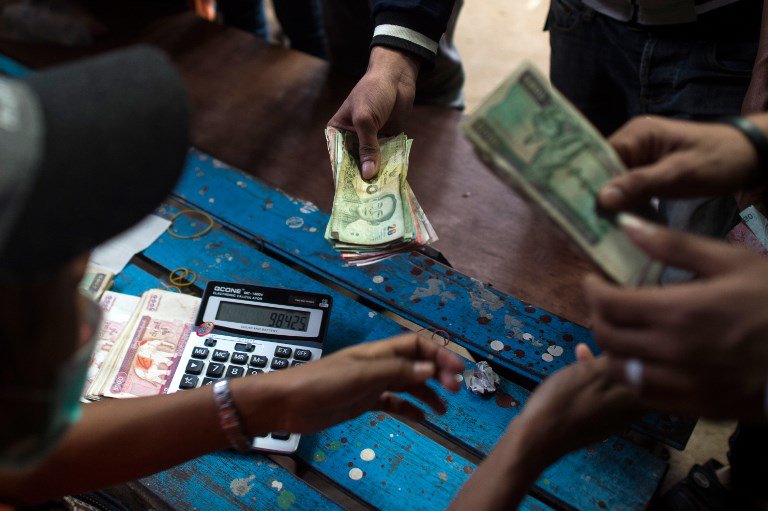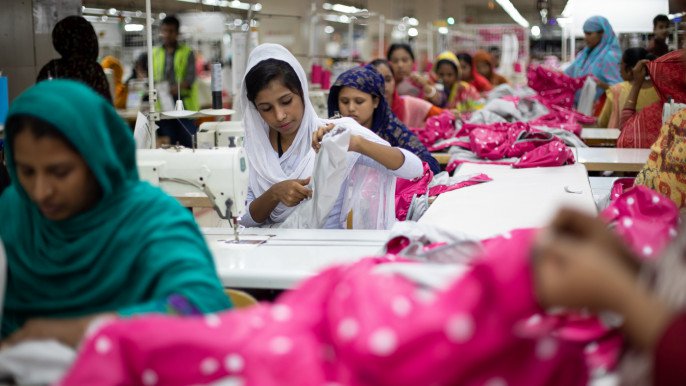Published in Dhaka Tribune on January 03, 2018

Photo: AFP/ Dhaka Tribune
The new daily figure of 4,800 kyats represents a 33% increase on Myanmar’s first-ever minimum wage introduced in 2015
Myanmar is set to raise the minimum wage to around $3.60 a day, state media announced Wednesday, as Aung San Suu Kyi’s civilian government struggles to project economic progress after almost two years in power.
The new daily figure of 4,800 kyats represents a 33% increase on Myanmar’s first-ever minimum wage introduced in 2015 by the previous army-backed administration.
“The new minimum wage will be applied across all regions and states to all businesses with 10 or more workers,” the state-backed Global New Light of Myanmar reported.
Suu Kyi’s National League for Democracy (NLD), which took power in April 2016, made the economy a central plank of its campaign.
But critics say it has failed to make real progress, struggling to pass laws that make Myanmar an easier place to do business or articulate a clear economic vision.
Myanmar saw GDP growth in 2017 slow to 5.9%, the International Monetary Fund said in November, estimating a rebound to 6.7% this year.
Supporters of the government contend it is too early to judge an administration which inherited a battered economy in one of Southeast Asia’s poorest countries.
Sean Turnell, an economic consultant to the government, said Suu Kyi’s administration had been “highly successful” in tackling high inflation, debt and budget deficits left by decades of junta rule.
“So their first order of business was to stabilise all of this. Not fun, and not something to bring about cheering in the streets,” he said.
Myanmar’s average annual income per capita is $1,140 and roughly 37% of the country’s 51 million people live near or below the poverty line.
But with wages lower than regional rivals Cambodia, Thailand and Vietnam, Myanmar wants to lure investors to its manufacturing sector.
But business confidence surveys paint a dull outlook for a country once celebrated as an Asian growth story.
The World Bank in October estimated a slowdown in growth and investment, though it said the overall economy remained stable.
The group also said that the crisis in Rakhine state, which saw more than 655,000 Rohingya Muslims flee to neighbouring Bangladesh, “could negatively affect investment flows already affected by investor perceptions of slowing reforms”.
Before the new wage comes into being there is a 60-day period to lodge objections or public comment, according to Myanmar’s Garment Manufacturers Association.
There are likely to be strong objections from employers, particularly small businesses and those hiring cheap seasonal workers.
 CPD RMG Study Stitching a better future for Bangladesh
CPD RMG Study Stitching a better future for Bangladesh



